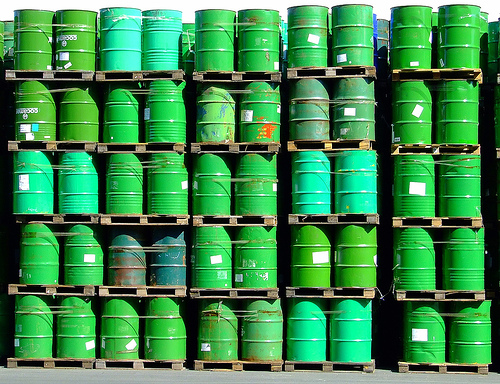
Photo by XcBiker, <a href="http://www.flickr.com/photos/xcbiker/740500486/">via Flickr</a>.
Want to apply “consistent and steady” international pressure on Iran, as President Barack Obama said world leaders should do recently? Stop sending them oil money.
How to prevent Iran from developing nuclear weapons is a core subject of the Nuclear Security Summit underway in Washington this week. A new analysis from the Center for American Progress suggests that cutting the amount of oil we buy, via a cap on carbon dioxide pollution, is a good place to start. While we don’t buy oil directly from Iran, we are the world’s biggest consumer of petroleum, driving up demand:</p>
Iran, “which holds the world’s second-biggest oil and gas reserves and supplies about 4.5 percent of the world’s oil production,” uses its oil power “as a strategic asset.” Even though oil is “one of history’s Big Levers concerning Iran,” the idea of gas sanctions to control Iran’s oil income is not likely to succeed, and could even backfire.
One mechanism to control the flow of petrodollars to Iran—whose oil production is worth $120 billion a year at current prices—is for the United States to control its appetite for oil. Based on an economic analysis by the Massachusetts Institute of Technology of a carbon cap that reduces global warming pollution by 80 percent by 2050, the Wonk Room has found that Iran would lose approximately $1.8 trillion worth of oil revenues over the next forty years — over $100 million a day.
Dan Lashof, director of the climate center at the Natural Resources Defense Council, has a great post echoing this point. One of the big questions about the pending climate and energy bill is whether its method of pricing petroleum will prove effective in cutting oil consumption. But it’s worth remembering that reducing oil use would yield more than environmental benefits alone.












